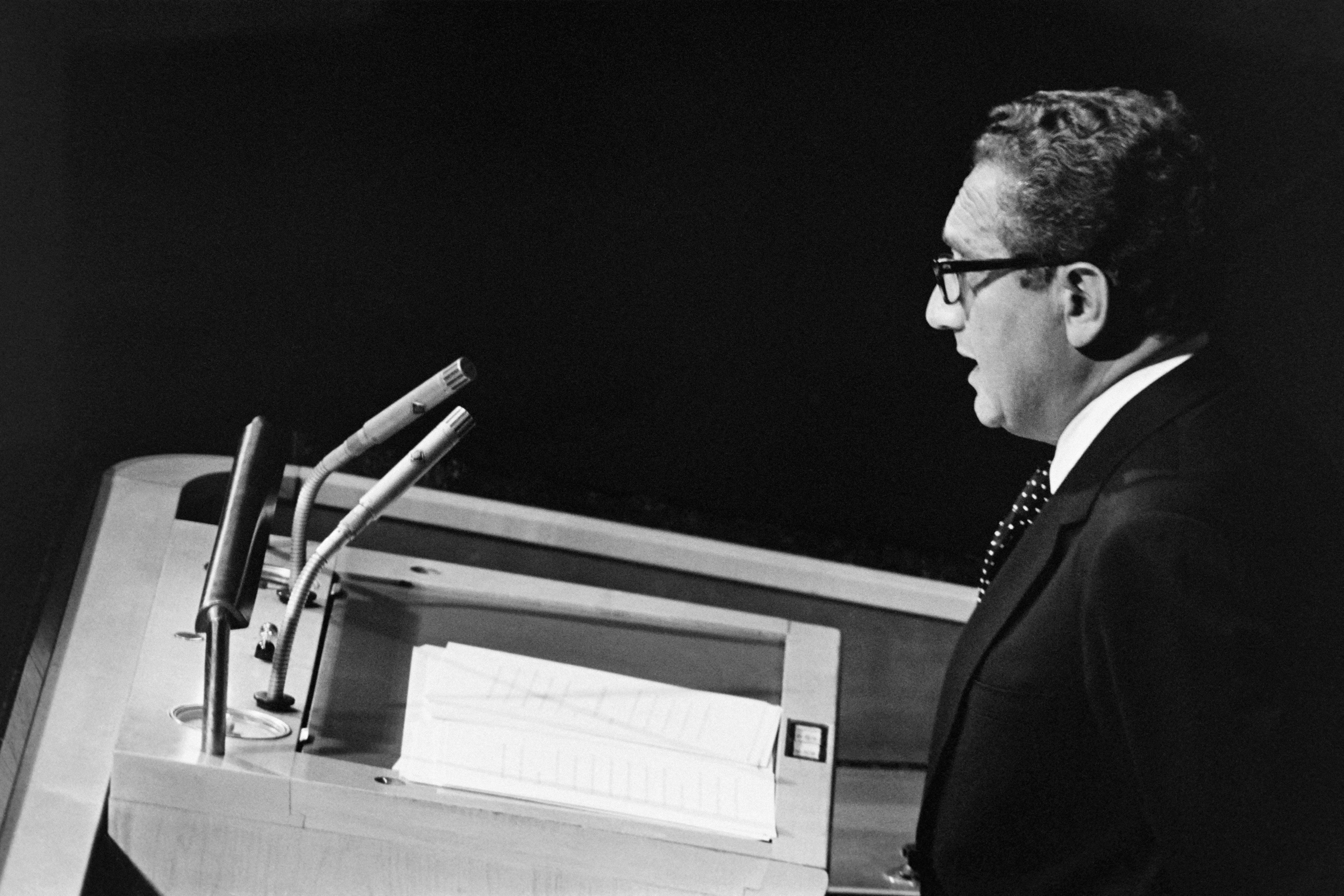We should look back on Kissinger not just as a ‘war criminal’ – but as a man who sought peace
The former secretary of state leaves a complicated legacy, writes Sean O’Grady. But the world could use his level of statecraft now


Henry Kissinger ought to be most remembered for a quip about the long, merciless and futile war between the Saddam Hussein’s Iraq and the ayatollahs running Iran in the 1980s: “It’s a pity both sides can’t lose”.
Kissinger should be celebrated for that remark because it epitomises everything that made Kissinger the force and influence on the world that he was for most of his life. Cynical, direct, sophisticated in thought but plain in presentation, his upsum of the Iran-Iraq war was completely correct – the world would have been better off without either of those nasty regimes.
Yet the sentiment was tinged with realism – the regret that such an ideal state of affairs wasn’t going to transpire. Kissinger was always a man to approach the world as it was, not as we would wish it to be. The remark thus showcased his finest of attributes – a rare gift for analysis and a clarity of thought that is glimpsed rarely in those in power. He was the greatest of strategic thinkers, a man who could understand and reframe “the big picture”, and secure some benefit for his country and for mankind.
We should look back on Kissinger not just as a “war criminal” – a charge with some merit that does need to be confronted – but as a man who sought and secured peace. We should recall with some nostalgia, for example, the era of US-Soviet detente in the 1970s from the vantage point of today almost as a golden age.
Though it didn’t sustain, he and Richard Nixon secured the first suspension of the Cold War through a series of risky geopolitical manoeuvres that first recognised and made peace with Mao’s communist China, and then leveraged that new relationship into strategic arms limitation deals with Russia. For an all-too brief period, American wealth, power and prestige was used to take the world back from the brink of mutually assured thermonuclear destruction.
For an America seemingly more diminished today as a superpower, and obviously threatened by resurgent China and revanchist Russia, that skill in geopolitics is surely sorely missed. In 1973 Kissinger was able to exercise that power to end a war in the Middle East which threatened not only to spiral into a wider conflict, but which was pushing the world into the worst economic slump since the Great Depression, on the back of a quadrupling in the oil price. Kissinger invented the kind of “shuttle diplomacy” that Anthony Blinken is attempting today, but with more efficacy.
That same year Kissinger ended the war in Vietnam through the Paris Peace Accords and the process of “Vietnamisation”. That too set a template for America extracting itself from intractable military engagements – declare victory and equip the local leaders to fight their wars, but withdraw American troops. The Kissinger technique was used in Iraq and Afghanistan and, like in Vietnam before, the client regime didn’t last that long after the Americans got out. In all those conflicts Kissinger’s postwar verdict was correct – the twin errors in Vietnam, Afghanistan and Iraq was a common one: to go in in the first place, and then not to win.
Never a man to underestimate his own worth, Kissinger would still most likely have continued his comfortable life at Harvard, touring the New York cocktail circuit and indulging himself socially had Nixon, impressed by Kissinger’s gift for strategic thought, not picked him in 1967/8 to be his national security adviser, and later secretary of state.
Without Nixon’s patronage, Kissinger wouldn’t have been able to claim, famously, that “power is the greatest aphrodisiac” – he was “a bit of a ladies’ man” as they said in those days. They were a team and, for all their terrible reputation, wanted to make peace, even if it had to be done the hard way.
It is right that any reckoning of Kissinger and Nixon should account for things they did that were morally wrong, unnecessary and mistaken; the invasion of neutral Cambodia in 1970; the indiscriminate bombing of civilians in that long war; conniving in the Indonesians’ brutal repression in East Timor; leaving the Kurds to their fate at the hands of Saddam as early as 1972; the list goes on. “War criminal” and Nobel Peace Prize holder – both are true of Henry Kissinger.
In foreign policy, Kissinger accurately reflected America not as it would like itself to be – the idealism of a Woodrow Wilson or a Jimmy Carter – nor as it so can be – blindly vengeful, like George W Bush and Donald Trump – but the kind of nation it is at its best: smart, hard-headed and realistic. Would that it was now.
Kissinger’s doctoral thesis – “Peace, Legitimacy and the Equilibrium” – was on the policies of Metternich and Castlereagh. These two practised great-power politics in a way Kissinger was to emulate – engagement with great powers of the time to win a stable balance of power. Then, it was about Europe; in Henry’s time, the whole world. Kissinger was supremely good at it; the present generation of policy-makers not so much.

Join our commenting forum
Join thought-provoking conversations, follow other Independent readers and see their replies